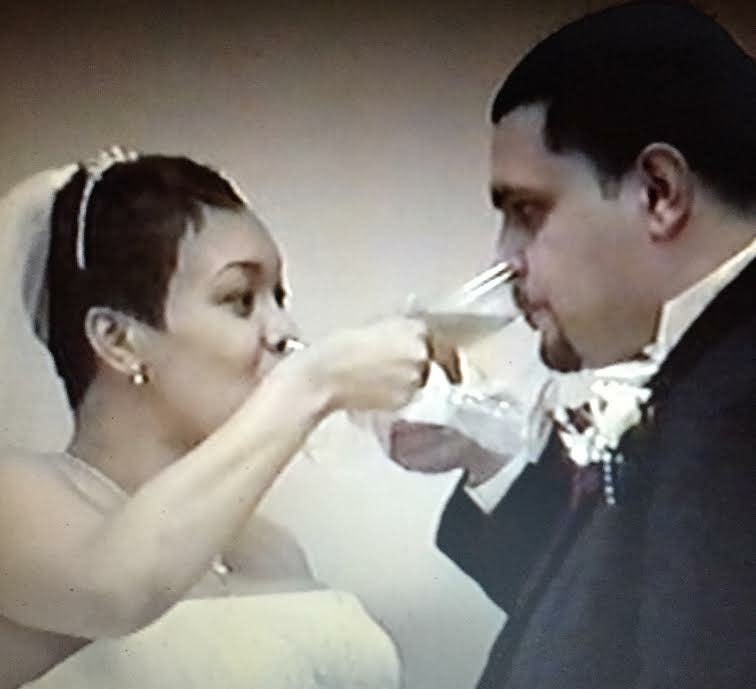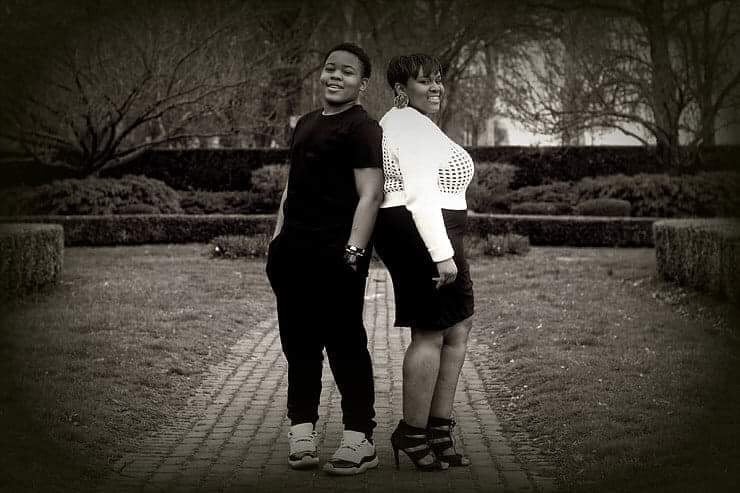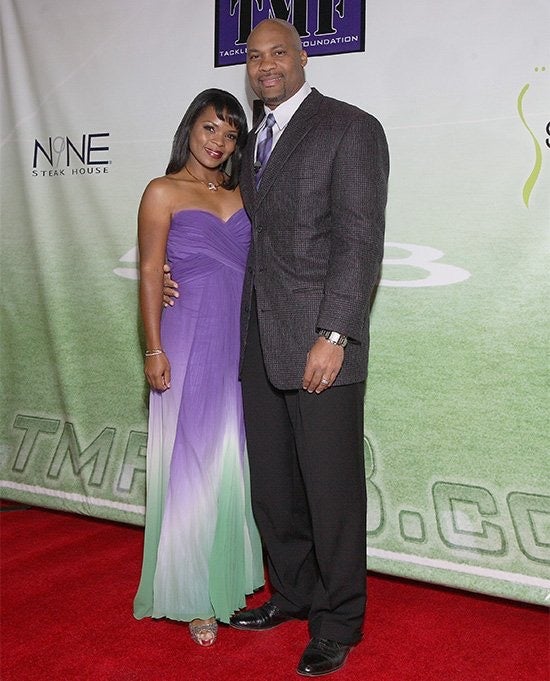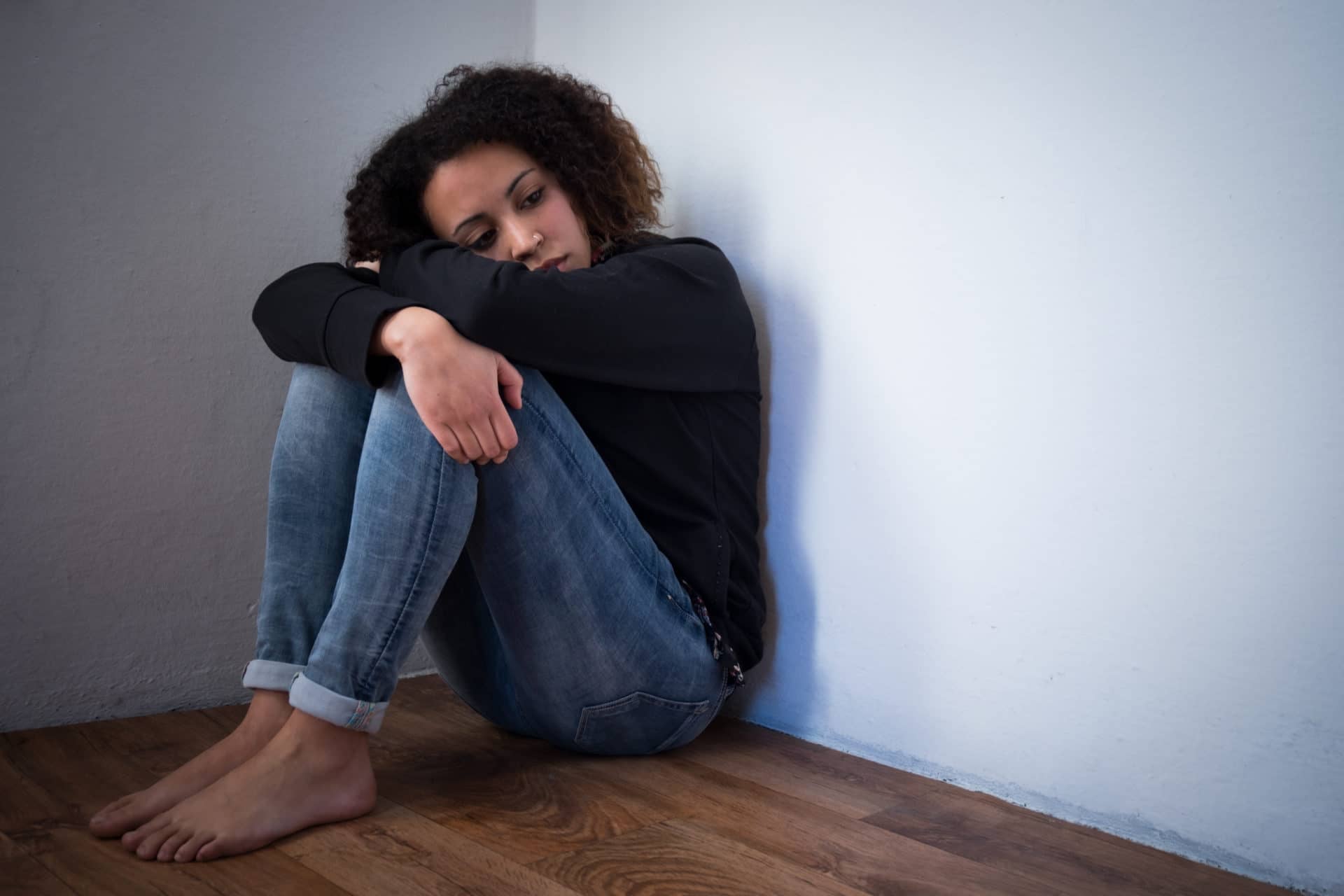“You’ll get through it. It’s in your blood. You’ll do what Black women have always done—be strong.”
According to legend, surviving the trauma of losing loved ones is carved into Black women’s blood memory. Even in the midst of unspeakable grief—grief that knocks us to our knees and steals the air from our lungs—we, daughters of the dust, are expected to move forward as quickly as possible, because it is within us to know how.
The legend is killing us.
There has been study after study done on the Black Superwoman. The women who birth babies and bury them before their time. The women who pour their all into partners as they lay on their deathbeds.
The women who are told that our very livelihoods are contingent upon how much pain we are able to withstand, how masterfully we are able to mask our grief.
I took my husband Savali’s last breath with him on December 17, 2018, and I haven’t exhaled since. The pain has pushed past vital organs and settled deep into my bones now. The research I’d read about grief made the acceptance phase sound like it would be a welcomed experience, but it has not been for me. The shadows of defeat have crept in, reminding me that when my husband was diagnosed with cancer in 2017, we went into a dark tunnel together, fighting off demons and beasts that we couldn’t see, only for me to emerge from that tunnel, battered, bruised, broken, alone.

But I’m not alone, not completely. We never are.
“I know you’re sad, but you’re too strong to let it kill you.”
Julia Mallory reached out to me on Facebook one month after Savali died. Since then, we have bonded in sisterhood and grief. Her beloved son Julian was shot on May 30, 2017. He died on June 2, 2017. He was only 17 years old.
“I am often praised for my strength and I know folks are well-meaning in bestowing that title upon me,” Mallory, 36, said. “However, if there were ever a time that I should not be ‘strong’ it would be after living through the worst tragedy of my life.
“A few weeks after my son died, the pressure to perform okayness only came from a few people that were highly dependent on me maintaining roles and responsibilities as I had done prior,” Mallory continues. “Making peace with my newfound limitations saved my life. I gave myself permission to feel whatever I needed to without significant investment in other people’s comfort. I truly had to face and accept that no matter what I did my life would never be the same again.

“I had people that needed me to be who I had been,” Mallory says. “Yet, I had to resist because I needed space for who I was becoming.”
And that becoming, emerging, evolving is not always pretty. I’ve found that it entails some boundaries collapsing and others being erected. Sometimes, it means looking in the mirror and not recognizing yourself anymore. The avatars that we present to the world are born of the terrifying truth that Black women are not allowed the vulnerability and messiness of grief. The capitalist structure of this nation renders it impossible for us to just be still, to process, to reflect, to heal. Not when there’s work to do, children to feed, and bills to pay.
Further, in this anti-Black, white supremacist society, Black women’s intimate grief is compounded by community grief. How many children do we have to see murdered by the state on camera? How many fathers and mothers do we have to lose to a substandard healthcare system that disrespects and disregards Black bodies? How many brothers and sisters do we have to watch be buried alive by the prison industrial complex?
When grief strikes even closer to home, we are not beginning that treacherous journey from a starting point of peace. Our souls are already rubbed raw.
In the 2008 study, “African Americans In Bereavement: Grief As a Function of Ethnicity,” researchers note: “In the United States, grief theory has relied largely on the experience of the dominant white culture to explain how Americans grieve in general. Cultural sub-groups, most notably African Americans, have received little attention from grief theorists, though researchers have recurrently indicated the pitfalls of assuming that African American grief mirrors that experienced by Caucasians.”
Additionally, due to the interconnectivity of the Black community, grief is more likely to lead to a greater sense of lost identity, which in turn, causes increased stress and distress.
So, when Black women are emotionally, spiritually, and physically decompensating, but society expects, often demands, we perform okayness, what are we supposed to do? Where are we supposed to go, especially when there are professionals claiming “days and weeks” is the typical window for so-called uncomplicated grief?
For Black women, grief is rarely “uncomplicated.” It can—and often does—kill us. The tragic, preventable losses of Erica Garner, Eric Garner’s daughter, and Venida Browder, Kalief Browder’s mother, both indirectly killed by the state, have proved that beyond all doubt.
“Quite frankly, people are more comfortable with the AngryBlackWoman than they are the SadBlackWoman,” Mallory says. “Many of us are also not comfortable tuning into that sadness because we think it will slow us down and yet we know it will manifest in other ways and eventually come to collect the attention it is owed.”
The masks that grin and lie, the ones that we struggle to perfect for our own sanity, are harming us.
“Those children aren’t going to let you grieve as long as you want to. You’re going to have to get back on the horse.”
Kimberly Alexander also reached out to me on social media following my husband’s death. Our journeys have several parallels. Her husband, Elijah, was only 39 when cancer stole his life nine years ago; my husband was only 41. Their two children were 13 and 11 at the time; our sons were 13, 10, and 6. We were also both on the cusp of our 15th wedding anniversaries.
“We’d been together 17 years,” Alexander, 46, told me late one night. “I was his cancer caregiver for almost five years.”
“I absolutely felt pressure to perform being okay, but it may have been heavily self-imposed,” Alexander says of the days and months following her husband’s death. “I knew my sons were paying attention to me and I didn’t want them to feel like I was pushing them to be ‘the men of the house.’ They were boys who’d lost their father at a critical age and I wanted them to have as normal a life as I could possibly provide, now wearing both hats.”
Alexander credits her parents with giving her the space to move through her grief at her own pace.
“My mom and dad stepped up in a huge way,” she admits. “Despite living out of state and having been divorced 32 years, they both moved into my house to help me raise our sons. That gave me time to process what I’d been through.”

When asked how she was able to move forward in her life after such an incredible loss, Alexander does not hesitate.
“I had to be strong because of my sons,” she confesses. “It wasn’t even up for debate.”
“Have you just stopped and grieved, yet?
Both Mallory and Alexander have made space in their lives for grief to live, to breathe, but they have both vowed not to let it consume them.
For Mallory, no matter how painful it has been to move forward, she’s maintained faith in her capacity to survive.
“My family and I were at the hospital for four days awaiting a sign that restoration of life was possible for Julian,” she recalls of her son’s final days. “On the fourth day—when he was removed from life support, and I witnessed the worst of it and still felt present in my body—I knew that I could make it beyond that day. I trusted that I would continue to survive despite the heartache that was ravaging my body.”
For Alexander, who has leaned on a small network of young widows who can identify with what she’s going through, the grief still lingers and lurks, defying any attempts she makes to suppress it.
“Something will remind me of Elijah completely out of the blue; a song, driving by restaurants we’d visited, watching a father interact with his sons,” Alexander says. “I’m used to it now. I don’t expect it to ever fully go away. It’s that hole in my heart I’ve learned to function with. I never wanted grief to make me angry or bitter though, that was very important to me.
“I’ve poured myself into cancer advocacy work to ensure that,” she continues. “Helping others is my way of feeling like I didn’t let cancer win.”
As for me, I still find myself saying that I can’t do this without Savali—the love of my life, the father of our three children, my partner of almost 20 years, and the only man I ever want to call husband. But one of my sisters gently reminded me, “You have been doing it without him. What you’re naming is that you don’t want to—and you shouldn’t have to.”
None of us should have to. But those of us capable of love inevitably will.
“I am hopeful for a future that includes Black people talking about our grief and making space for one another to be honest about our pain, and what we need to heal,” Mallory says.
Hopefully, that future is right here. Right now.
